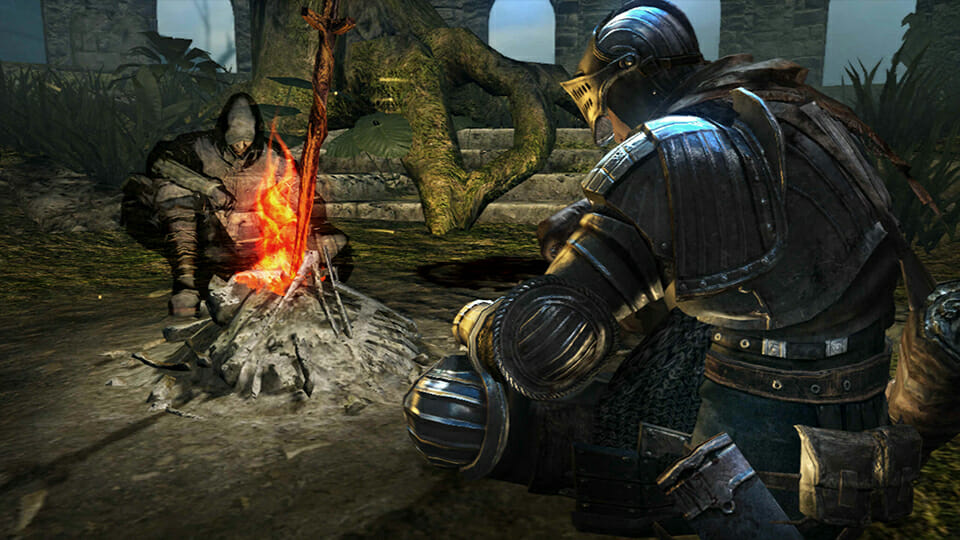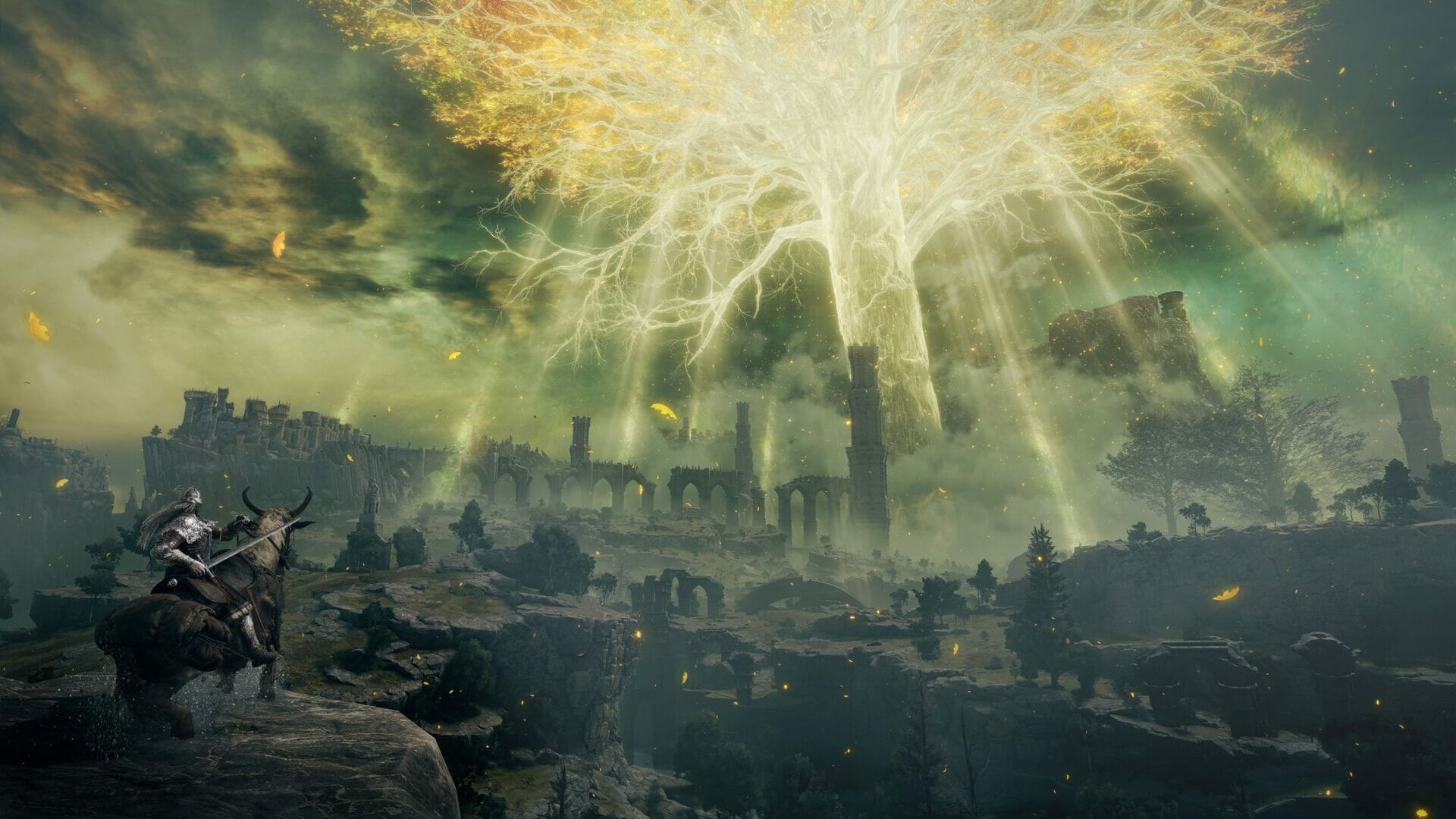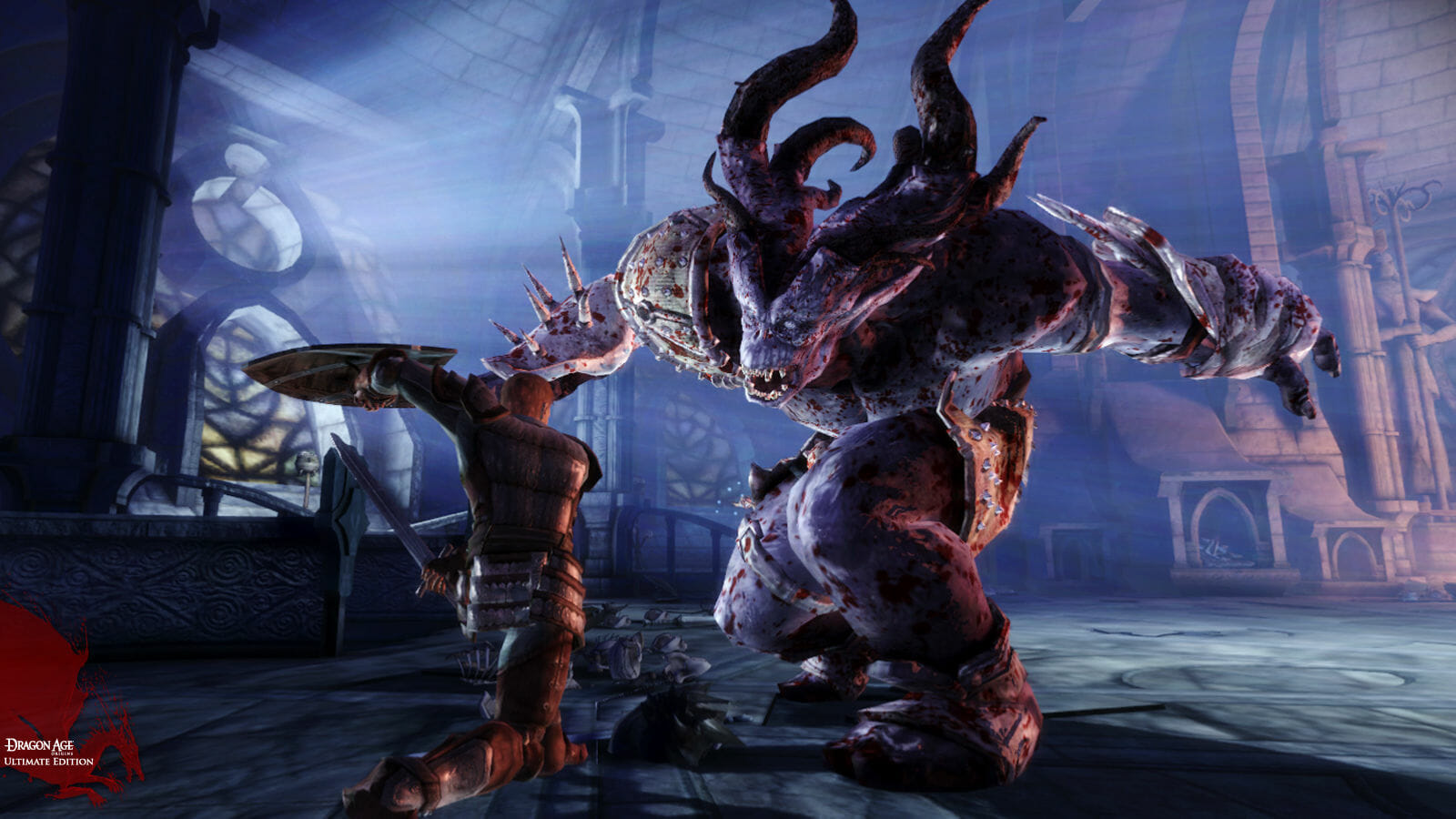
Dragon Age: Origins | The dark fantasy that redefined RPGs
Studio
Art Director
Lead Composer
Publishing Year
Type of game
Subgenre
Country
By the mid-2000s, BioWare had become one of the main developers of RPG titles thanks to already existing licenses such as Dungeons and Dragons and Star Wars. After the making of Baldur’s Gate & Neverwinter Nights, BioWare wanted to create an original franchise of its own. A wish that brought two series to life: Mass Effect and Dragon Age: Origins. The latter saw development first with a demo called Chronicles, and the release of an official trailer in 2004. The following five years were spent developing the lore and gameplay, culminating in a video game that would elevate the RPG genre.
“The Blight is upon us”
The land of Ferelden is plagued by a recurring blight that brings scourge upon the land: an invasion of Darkspawn. Once mages who attempted to usurp the heavens and had been cursed into monstrosities, they emerge from the depths under the lead of an archdemon. Only an order of heroes, the Grey Wardens, were able to prevail against each of their comings. But as the fifth blight draws near, the order is weaker than ever, and the country is torn by inner wars. It will be up to the protagonist to stop this before all is lost.
The concept of an eternal fight between good and evil is far from original, in particular in fantasy. However, the emotionally moving and in-depth narrative of Dragon Age: Origins makes the difference in delivering a simple storyline in an engaging and innovative way. Supported by high-quality voice acting, animated cutscenes, and an epic musical score, it overshadowed the graphic limitations of the time.
Dragon Age: Origins combines new and old RPGs
With the success of Lord of the Rings first and A Song of Ice and Fire later – both sources of inspiration for the franchise – the ever-growing appeal of fantasy in media was undisputed. As such, Bioware set its goal to fulfill the demand for high fantasy in video games. All the while targeting both fans of their previous RPG titles as well as console players. Thus Dragon Age: Origins represented a chance to create a video game like none before. A combination of the cinematic storytelling of newer titles with the classic flavor and strategic combat of older ones. The choice of developing a dark fantasy tale catered to a more mature audience was thus successful and showed all its potential in its main feature: role-playing.
Up until then, this specific aspect entailed at most a binary choice of morality alignments, like in Bioshock and FallOut3. But the simplicity of it, while innovative at first, had the flaw of taking away the weight of in-game choices. Instead, Dragon Age: Origins’ approach eliminated all predetermined paths, embracing the moral ambiguity between the extremes of good and evil. It encouraged the player to think, with the understanding that each choice could have tangible effects on the whole storyline.
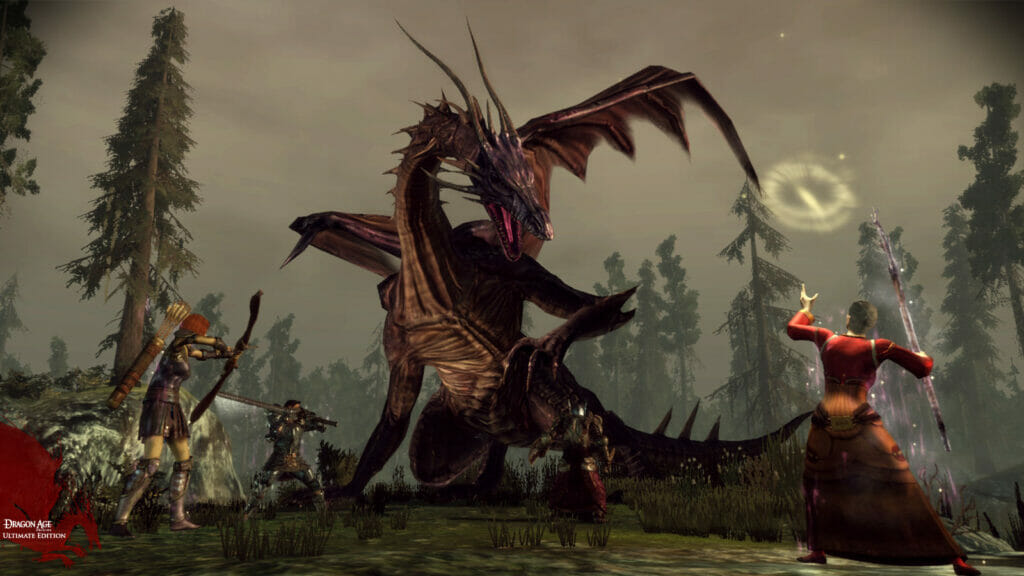
A narrative of choice and consequence
Dialogue is yet another key element that enriches role-play while also having an effect on the course of the story. In Dragon Age: Origins the dialogue options are broad and feature fully-voiced NPCs against a silent, third-person protagonist. A feature that, while not uncommon at the time, can result in off-putting during cutscenes. Other games like Skyrim managed to avoid this issue thanks to first-person pov, which does not break the immersion.
The aforementioned variety of choices extends to quests as well. By offering different possible approaches to solving a situation, the developers provided a satisfying gaming experience.
Furthermore there is the cast of supporting characters, all of which are well developed and play an important role. Since Baldur’s Gate, BioWare had sought to improve supporting characters in terms of party banter, NPCs, backstory, and romance alike: Dragon Age: Origins is the epitome of it. It provides complex and compelling interactions that make them feel like an integral part of the story.
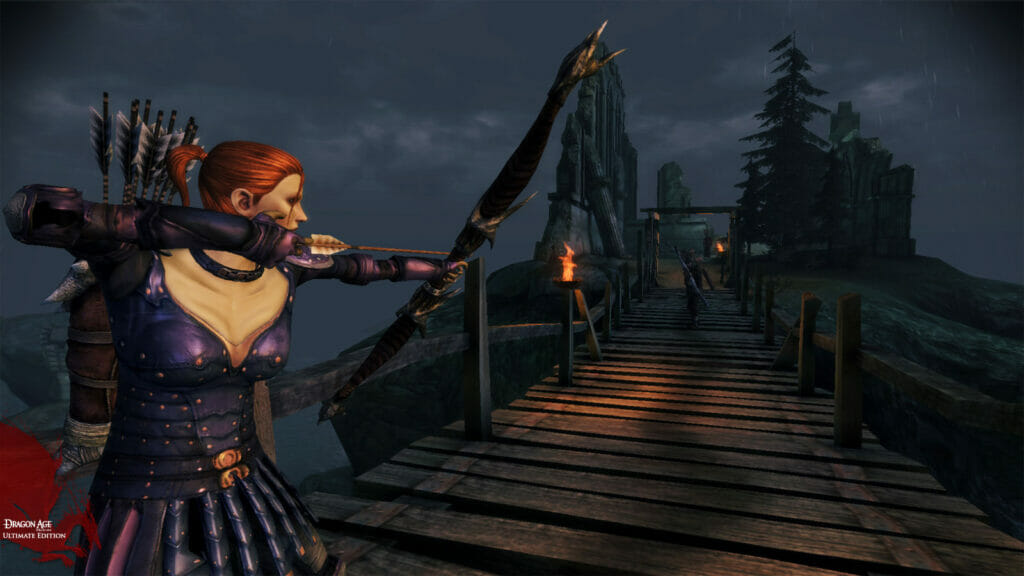
The double role of customization
On the other hand, Dragon Age: Origins’ character creation system offers fewer options compared to most RPGs. There are only three races – human, elf, and dwarf – and three classes – warrior, mage, and rogue – plus a handful of backgrounds. A limited set of choices, which however do not equal a superficial gaming experience. The prologue alone, which introduces the character’s place in the world and their involvement with the Grey Wardens, varies greatly for each of the six possible origin stories.
But the consequences of this choice do not stop in the initial section. Instead, they branch out to in-game interactions, plot events, and exclusive side quests. That is because Dragon Age: Origins enhances the role of choices from the moment of creation all throughout the game, giving renewed importance to the player’s agency and increasing the replay value.
The fault with Dragon Age: Origins combat gameplay
In RPGs, the combat plays a role as big as the storytelling in the enjoyment of the gameplay: such is the case for titles like The Witcher. But in Dragon Age: Origins the narrative far outweighs the gameplay.
The developers chose to adapt the existing RPG combat in a way that resembled more the dynamics of tabletops like Dungeons and Dragons. It revolves around the strategic management of a party of multiple members – the protagonist and up to three NPCs – during combat.
A choice meant to appeal both to the audience already familiar with such mechanics and to newcomers.
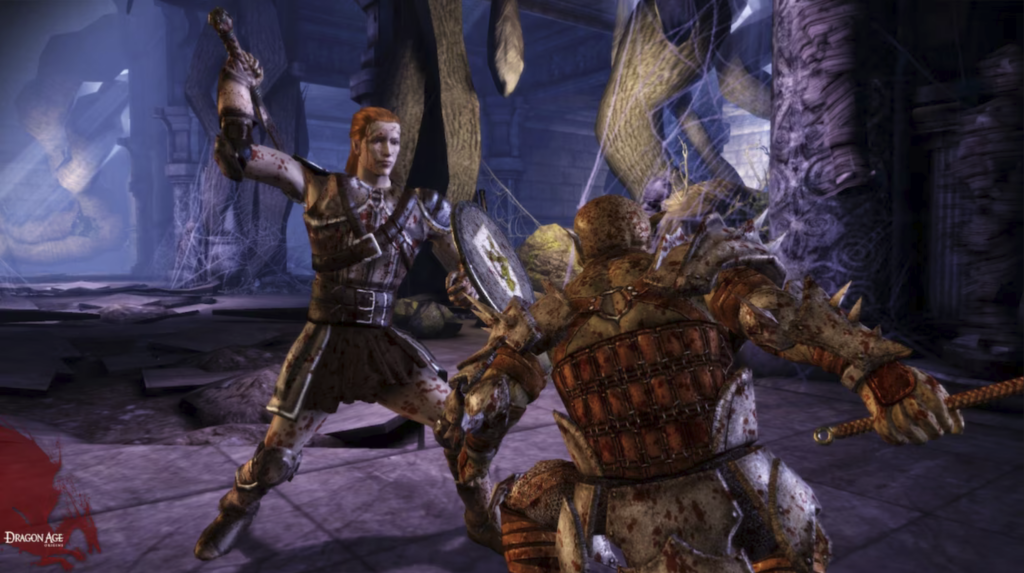
However, due to the lack of significant challenges in terms of encounter variety and enemy strategy alike, the combat mechanic is repetitive. Moreover, not all classes are equal and can result in an unbalanced party, with overpowered mages on one hand and undeveloped warriors and rogues on the other.
Still, despite its faults, the combat aspect does not hinder the experience that is Dragon Age: Origins. Its rich worldbuilding and engaging narrative won the favor of critics and audiences alike, and the franchise features two successful sequels: Dragon Age II and Dragon Age: Inquisition.
Tag
Buy a ☕ for Hypercritic







